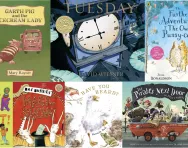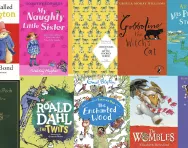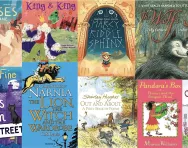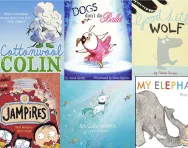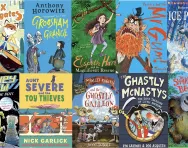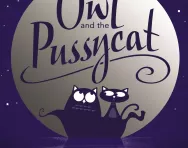Important update from TheSchoolRun
For the past 13 years, TheSchoolRun has been run by a small team of mums working from home, dedicated to providing quality educational resources to primary school parents. Unfortunately, rising supplier costs and falling revenue have made it impossible for us to continue operating, and we’ve had to make the difficult decision to close. The good news: We’ve arranged for another educational provider to take over many of our resources. These will be hosted on a new portal, where the content will be updated and expanded to support your child’s learning.
What this means for subscribers:
- Your subscription is still active, and for now, you can keep using the website as normal — just log in with your usual details to access all our articles and resources*.
- In a few months, all resources will move to the new portal. You’ll continue to have access there until your subscription ends. We’ll send you full details nearer the time.
- As a thank you for your support, we’ll also be sending you 16 primary school eBooks (worth £108.84) to download and keep.
A few changes to be aware of:
- The Learning Journey weekly email has ended, but your child’s plan will still be updated on your dashboard each Monday. Just log in to see the recommended worksheets.
- The 11+ weekly emails have now ended. We sent you all the remaining emails in the series at the end of March — please check your inbox (and spam folder) if you haven’t seen them. You can also follow the full programme here: 11+ Learning Journey.
If you have any questions, please contact us at [email protected]. Thank you for being part of our journey it’s been a privilege to support your family’s learning.
*If you need to reset your password, it will still work as usual. Please check your spam folder if the reset email doesn’t appear in your inbox.
11 reasons to read a bedtime story every night

The bedtime story is one of those parenting traditions that endure through the years. Many of us have fond memories of sharing a bedtime book with our own parents, and now do the same with our children.
Yet in today’s increasingly time-pressed world, the bedtime story often falls prey to our busy schedules and long working hours.
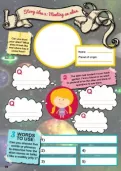
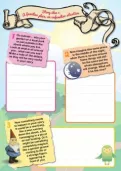
Download a FREE Creative Writing toolkit!
- KS1 & KS2 workbooks
- Bursting with fill-in prompt sheets and inspiring ideas
- Story structure tips, style guides and editing suggestions
New research from Uber shows that although 70% of us value bedtime stories as an important part of our children’s routine, nearly half of parents say that their work patterns prevent them from sharing books at bedtime, and one in five are never able to read to their children.
‘Reading to our children is not just a bedtime event; it’s an activity that can be encouraged in every area of life,’ says Kate Rumsby from Coram Beanstalk, a charity that trains volunteers to support children with reading.
‘That said, there’s something very special about a bedtime story being read out loud. A bedtime story doesn’t require children to focus on the mechanics of learning to read, but on the enjoyment of the story and the idea of being transported to other worlds before drifting into dreams about them.’
We’ve rounded up 11 great reasons to make bedtime stories a priority whenever you can.
1. It’s good bonding time
Whatever your child’s age, sharing a bedtime story gives them a time when they have you all to themselves – something that may not happen at any other point of the day.
Indeed, Uber’s research shows that 60% of us feel that reading to our children brings us closer together.
‘A night-time book shared with your child when they’re snuggly and ready for bed is the perfect time for cuddles, to bond and to make cosy memories that will last a lifetime,’ says Emily Drabble of BookTrust, the UK’s leading reading charity.
2. It improves your child’s reading skills
Just because you’re the one doing the reading, don’t assume that your child isn’t learning. ‘You’ll be surprised by how much children grasp when you’re reading a bedtime story, following the words and starting to recognise them on the page,’ says Kate.
A bedtime story is also a good opportunity for shared reading, for example taking it in turns to read a page – or a paragraph, depending on your child’s ability. This will give your child a daily opportunity to practise reading, while also benefiting from being read to.
3. It sparks imagination
Unicorns, wizards, fairies and monsters… Books open up whole new worlds to children, both real and imagined, and sharing a bedtime story will take them to places they’d never have dreamed of.
‘Books can teach your child about the world while also opening their imagination,’ Emily explains. ‘Reading fiction provides specific information gaps that your child can fill with their own imagination, and this guesswork and decision-making stimulates the mental patterns that are fundamental to creativity.’
4. It creates conversation
Any parent who’s read a bedtime story will know that the words on the page are only part of the experience. You’ll also be answering questions, explaining concepts and talking about what’s happening on the page.
‘Reading together can trigger all sorts of wonderful questions and stimulate conversation, which can help children understand their own place in the world,’ says Kate.
So while you might be in a rush to finish the book and get on with your evening, allow time in your bedtime routine to chat about what you’re reading: you’ll be helping your child’s development and gaining an fascinating insight into how their mind works.
5. Making a routine means you won’t forget
We all know that certain tasks get overlooked in the hustle and bustle of daily life, but if you make reading a part of your child’s bedtime routine – as important as brushing their teeth – it means you’re less likely to forget.
‘With a routine in place, picking up a book before bed will become second nature,’ says Emily.
Don’t worry, though, if there are nights when you can’t read. Why not ask a family member, whether that’s a sibling or a grandparent, to read your child’s bedtime story instead, or, if you’ve been kept late at work, share a story with them over Skype or FaceTime?
6. It expands your child’s vocabulary
Did you know that children need to hear a word up to 12 times before they can start to use it themselves? Reading a bedtime story will give your child this exposure to new words (especially if you’re reading the same book, night after night!) and so build their vocabulary.
‘Reading aloud introduces children to new words and new ways of describing the world around them,’ says Kate. ‘Using a wide range of vocabulary can help improve theirs.’
And it’s not just the words on the page that boost your child’s vocabulary, but how they’re used, too. ‘Rhymes, rhythms and patterns will help them with their reading, writing and language as they grow,’ says Emily.
7. It improves their emotional intelligence
Books can help little people deal with big feelings, and sharing a bedtime story can be a way into discussing difficult situations.
‘Reading helps children recognise that they are not alone, and that others have faced the same problems and feelings as them,’ Emily explains.
‘Sharing books also opens up opportunities to discuss difficult topics, like illness in a family member, and provides a structure to have these conversations.’
Reading to your child will also expand their emotional vocabulary, giving them words for what they’re feeling. This can make them better able to express themselves, and less prone to the emotional meltdowns that can happen when they’re wrestling with feelings that they don’t know how to talk about.
8. It encourages independent reading
Don’t fall into the trap of thinking that reading to your child will make them ‘lazy’ and less likely to read by themselves.
A report by the Reading Agency found that children are more likely to read through free choice if reading is enjoyable in the first place, and reading to your child at bedtime is a great way to help them fall in love with books.
‘Children who get more exposure to books and stories from a young age are more likely to want to read independently, which can help in all aspects of their future and will lead to them becoming adults who read to their own children,’ says Kate.
9. It improves mental wellbeing
The current mental health crisis amongst kids is well documented, with even primary school pupils suffering from anxiety and exam stress.
Recent research by the National Literacy Trust found a link between reading and mental wellbeing, so sharing a bedtime story with your child could help to improve their emotional health.
‘Story characters can be models for your child, which can help foster coping skills and build confidence,’ says Emily. ‘We know that children who read are happier, healthier, more empathetic and more creative.’
10. It helps you (both) relax and unwind
Many of us introduce a bedtime story in the baby days as part of our little one’s evening routine, and it can still help promote relaxation at bedtime even for older children.
‘At the end of a busy day, a bedtime story can be a way of leaving the day behind, helping the whole family switch off so that whatever stress and noise has happened throughout the day can be forgotten,’ says Kate.
11. It’s good even for children who can read by themselves
Yes, it’s tempting to ditch the bedtime story once your child is an independent reader, but there are many benefits in carrying it on, even though they can read by themselves.
‘Once children learn to read, they need to stay engaged with books that interest them, and this can often be books that are slightly more advanced than their reading level,’ explains Emily.
Reading together at bedtime gives your child access to books that might otherwise be beyond them. Even if they’re reading by themselves, you can sit with them to help them with tricky words, and encourage them to keep going when it gets hard by reading them the next page or chapter to hook them in.
It also means you’re on hand to help with any difficult concepts that might come up, and – perhaps most importantly – gives them that time of closeness in their increasingly independent lives.
